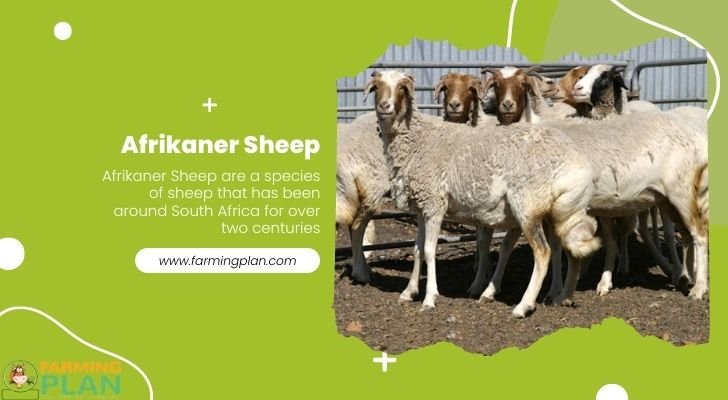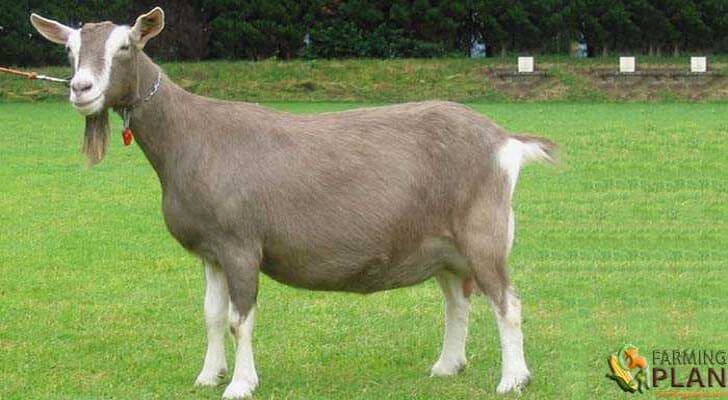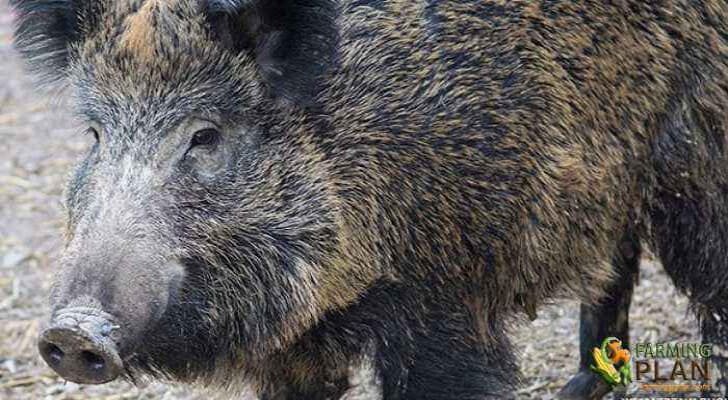Are you an animal lover looking for a unique and meaningful way to contribute to your local community? Have you ever considered raising livestock? If so, look no further than Afrikaner Sheep! These ancient native South African breeds have been used in the region since at least the early 1800s. They are hardy, easy keepers – requiring only minimal care and attention from their owners. Not only are they low-maintenance animals, but their luxurious wool makes them incredibly sought after too! From food production to providing fiber for textiles, this versatile species is sure to become your favorite farm companion. Read on learn about why Afrikaner Sheep make excellent candidates for adding a touch of history—and positive change—to your farm or homestead today!

History & Origin
Afrikaner sheep are an ancient native breed that has been native to South Africa for centuries. They come from a long line of ancestors, including the Damara, Blackhead Persian, Pedi, and Zulu (Nguni) sheep. Afrikaner sheep are known for their hearty hardiness and adaptability in many climates and environments in South Africa, making them a highly desirable stock choice among Afrikaans livestock owners. They boast notable features such as large horns that curve outward in a wide angle and thick coats which make them resistant to parasites and diseases. Sheep have been gathered throughout the country by Afrikaans herders over many generations and they continue to play an integral part in Afrikaans lifestyle and industry today.
Characteristics
Afrikaner Sheep are a species of sheep that has been around South Africa for over two centuries. They are great multi-purpose animals and can be used for their meat, wool, hides, and milk production. Afrikaner Sheep have an impressive hardiness that makes them well suited to the diverse terrain of South Africa, able to survive in drought conditions as well as in pastures. Sheep are estimated at between 80-175 pounds and have white or light brown fleece with black faces; their ears curl inward and meet at the top of their head. Afrikaner Sheep withstand harsh weather much better than other breeds because their fleece is so fine and supple. This breed has become popular among sheep farmers across the nation for its remarkable workability but also because of its unique characteristics.
Feed
Afrikaner sheep are a hardy breed, with an ability to thrive off of ordinary feed, making them an ideal breed for those looking to raise sheep in South Africa. The sheep can survive on rough grazing, hay, pellets, and meal. But for good maintenance and optimum growth, Afrikaner sheep require balanced nutrition including proteins, carbohydrates, and essential minerals such as calcium, phosphorus, and sodium. Although dietary needs vary depending on age, gender, and physical condition of the Afrikaner sheep flock, providing access to fresh water and a well-balanced diet will result in healthy livestock that is ready for many years of productive use.
Usage
Afrikaner sheep are a unique breed that has been in existence for centuries. Traditionally, they were used as livestock to provide meat and wool, but they have also been used to develop other types of livestock. Afrikaner sheep are versatile animals and their wool can be used for spinning and felting, while the meat is high in demand in South Africa. Additionally, Afrikaner sheep can also be crossbred with other local breeds such as the Damara, Blackhead Persian, Pedi, and Zulu (Nguni) with terrific results – thus making them invaluable assets to farmers in southern Africa. Therefore Afrikaner sheep represent an invaluable part of South African culture and heritage as well as being highly productive animals that can provide useful goods for many industries.
Special Feature
Afrikaner Sheep are an incredible breed native to South Africa. With a large frame and good meat-producing characteristics, Afrikaner sheep boast a distinct white wool with a purple tinge. Afrikaner sheep are quite adaptable and disease-resistant and have helped the herding industry in South Africa since they were first introduced hundreds of years ago. This long-standing physical resilience is especially worth noting as the Afrikaner Sheep have maintained their presence for centuries through both warm climates and hot summers, as well as harsh winters and drought periods. Afrikaner Sheep are one of the oldest native sheep breeds in South Africa and maintain a rich history that remains relevant today.
Advantages of Raising Afrikaner Sheep
Afrikaner Sheep are renowned for their superior wool production, making them an excellent choice for small-scale producers. Afrikaners have been bred to thrive in arid climates with limited feed and water sources, making them ideal for farmers in South Africa who may not have access to conventional provisions. The Afrikaner’s renowned heavy fleece, coupled with its prodigious ability to convert grass into protein, makes Afrikaners a valuable asset to any flock. They are also known for their hardy nature, meaning they are resistant to most common infections and parasites. Whatever the purpose–fleeces or meat production– Afrikaner Sheep offer significant advantages for the small-scale farmer looking to maximize output from their flock.
Ways to Care for Afrikaner Sheep
Afrikaner sheep are an important part of South African agricultural heritage, and they require proper care to continue thriving in the future. Afrikaner sheep require good nutrition – including a source of fresh, clean water and quality feed – shelter from extreme temperatures and weather, space to roam and graze, hoof trimming, parasite control, and regular vaccinations. When Afrikaner sheep receive the right care, they grow to be healthy animals with colorful wool yielding highly sought-after fiber products. Investing in the right care for Afrikaner sheep can ensure that this beloved breed continues to thrive well into the future.
FAQ
What are African sheep called?
African sheep, which belong to the Caprinae family of ruminants, can generally be referred to as either desert or mountain sheep. The most commonly found types of African sheep are Barbary Sheep (Ammotragus lervia), Nile Lechwe (Kobus megaceros), Damaliscus lunatus, and Addax (Addax nasomaculatus).
Which sheep breed grows fastest?
The breed of sheep that grows the fastest is the Dorper Sheep. This is a hybrid breed from South Africa, which has been specifically bred by cross-breeding indigenous African hair sheep with European landrace and purebred sheep. The result was a hardy animal that could survive in harsh conditions while also growing quickly and efficiently to meet consumer demands.
Are there sheep native to Africa?
Yes, there are several species of sheep that are native to Africa. Some of the most prominent include the Nubian ibex, which is native to Egypt and north-eastern Sudan; Dorcas gazelle (Gazella dorcas), a native inhabitant in parts of northern Africa; Barbary sheep (Ammotragus lervia), a relatively large wild species also called aoudad, which is endemic to Algeria, Morocco, and Tunisia; Beira antelope (Dorcatragus megalotis), an endangered species that is only found in Angola and Mozambique; Leucopaxilleuris Somalia or Somali wild sheep, only found in Somalia and Ethiopia; Addax nasomaculatus or white antelope, commonly known as addax and Giraffe gazelle (Gazella giraffae) which inhabits sub-Saharan countries such as Ethiopia. These are just some among many other varieties of wild sheep that inhabit various countries across African terrain.
Conclusion
In conclusion, the Afrikaner Sheep is a resilient and exceptional breed of sheep native to South Africa. Its long lambswool is ideal for a variety of uses; care for the sheep is fairly simple due to their hardy nature, making them an excellent choice for farmers who want a sustainable sheep breed. The history behind this protective breed helps us to understand why Afrikaner Sheep are as strong as they are today. Additionally, the Afrikaner Sheep offers a wide range of advantages, from high fertility rates to insect resistance and increased wool production when compared with other breeds. We hope this post has helped understand more about this remarkable breed and the benefits it can offer those who choose to raise them.


